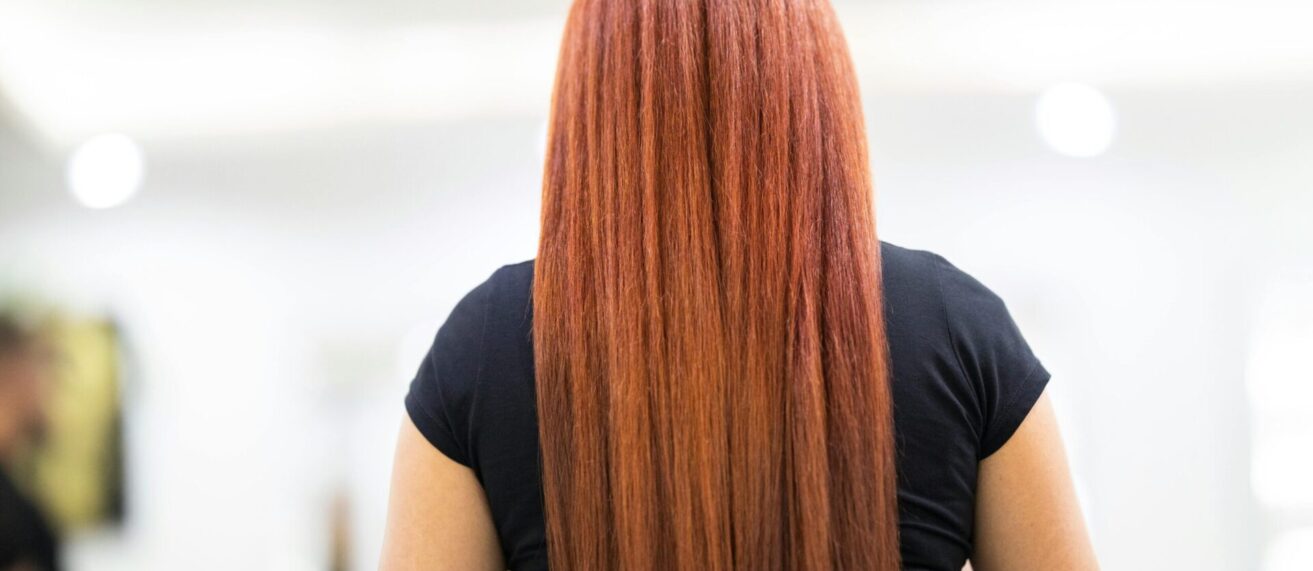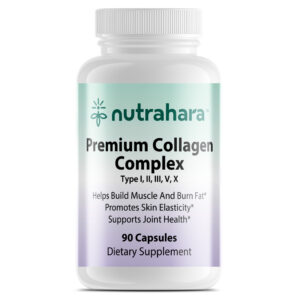
Nutrahara Blog
Nutrahara Blog
The Ultimate Guide to Hair Health: Natural Remedies, Nutrients, and Best Practices
1. Introduction to Hair Health
1.1 The Importance of Healthy Hair
Hair is not just an aesthetic feature; it plays a vital role in our self-perception and cultural identity. Hair health signifies vitality, youthfulness, and overall wellness. When hair looks and feels strong, shiny, and full, it boosts self-esteem and reflects positive inner health. Hair concerns like thinning, excessive shedding, or dullness can act as early indicators of nutritional deficiencies, stress, or hormonal imbalances. Thus, understanding how to maintain healthy hair is essential not just for beauty, but for overall well-being.
1.2 The Role of Nutrition in Hair Health
Hair is a non-essential tissue, meaning the body prioritizes other organs over hair when distributing nutrients. This makes hair especially vulnerable to nutritional deficiencies. A balanced diet rich in proteins, vitamins, and minerals directly impacts the structure and strength of each hair strand. Without proper nutrition, the hair growth cycle may be disrupted, leading to hair thinning, slow growth, and brittle texture. Ensuring an adequate intake of nutrients is key to supporting both the scalp and hair follicles in producing strong, resilient hair.
2. Understanding Hair Structure
2.1 Anatomy of Hair
To truly care for hair, it’s important to understand its structure. Hair is composed of a protein called keratin, which forms three distinct layers. The outermost layer, the cuticle, consists of overlapping cells that act like roof shingles to protect the inner parts of the hair. Beneath the cuticle lies the cortex, which gives hair its color, texture, and strength. The innermost part, the medulla, plays a less defined role but is generally found in thicker hair types. Damage to the cuticle results in breakage, split ends, and dullness. Knowing how to preserve the integrity of the cuticle ensures a healthy head of hair.
2.2 Hair Growth Cycle
Hair grows through a repeating cycle consisting of three phases:
- Anagen Phase (Growth): This is the active growth phase, lasting between 2-6 years. The longer this phase, the longer the hair will grow.
- Catagen Phase (Transition): A short transition phase that lasts about 2 weeks. Hair growth slows, and the follicle begins to shrink.
- Telogen Phase (Resting): In this final stage, hair is shed, and the follicle remains dormant for about 3 months before restarting the cycle.
Each hair follicle operates independently, which is why we don’t lose all our hair at once. Disruptions to this cycle, whether due to stress, hormonal imbalances, or illness, can lead to excessive hair shedding and even conditions like alopecia.
3. Nutrients for Optimal Hair Health
3.1 Essential Vitamins and Minerals
Proper hair care starts from within. A wide range of vitamins and minerals play a critical role in maintaining hair strength, promoting growth, and preventing hair loss:
- Vitamin B Complex (Biotin): One of the most well-known vitamins for hair health, biotin (B7) supports the production of keratin, the main structural protein in hair. A deficiency in biotin often leads to brittle, thinning hair.
- Vitamin C: Known for its role in collagen synthesis, vitamin C is vital for the structural integrity of hair. It also acts as an antioxidant, protecting hair follicles from oxidative stress and environmental damage.
- Zinc: Zinc helps regulate hormone levels and supports the proper functioning of hair follicles. Deficiency in zinc is linked to hair thinning and hair loss.
- Iron: Essential for oxygen transport to hair follicles, iron deficiency is a common cause of hair loss, particularly in women. Without enough iron, hair follicles can become starved of oxygen, leading to shedding.
A diet lacking in these key nutrients can severely affect hair health, but supplementation may help to ensure you are giving your hair the nutrition it needs.
3.2 Protein and Keratin: Building Blocks of Hair
Protein forms the foundation of hair. Keratin, the primary protein in hair, gives it strength and resilience. Without enough protein in your diet, hair may become weak, brittle, and more prone to breakage. Protein-rich foods, such as eggs, lean meats, and legumes, help in maintaining the structural integrity of hair fibers. Additionally, using keratin-based hair treatments can help repair and protect damaged hair, but maintaining a protein-rich diet is the most sustainable approach for long-term hair health.
4. Common Hair Problems and Solutions
4.1 Hair Loss
4.1.1 Causes of Hair Loss
Hair loss is a common issue faced by both men and women and can occur for a variety of reasons:
- Genetics: Hereditary hair loss is the most common cause and can begin as early as your 20s.
- Hormonal Changes: Pregnancy, menopause, and thyroid imbalances can all lead to temporary or long-term hair loss.
- Stress: Physical and emotional stress can trigger hair shedding, sometimes months after the stressful event.
- Nutrient Deficiencies: Low levels of iron, biotin, or protein can hinder hair growth and cause thinning.
4.1.2 Prevention and Treatment of Hair Loss
Treating hair loss often requires a multi-faceted approach. While genetics can’t be changed, supplements like biotin, vitamin D, and zinc can support hair growth. Stress management techniques such as meditation or exercise can also slow hair shedding. Topical treatments like minoxidil can stimulate follicles, and in more severe cases, professional treatments like platelet-rich plasma (PRP) therapy or hair transplants may be considered.
4.2 Hair Breakage
4.2.1 Causes of Hair Breakage
Hair breakage occurs when the hair shaft becomes weak and fragile. Common causes include:
- Overuse of Heat Tools: Excessive blow-drying, flat-ironing, and curling can cause the cuticle to crack, leading to breakage.
- Chemical Treatments: Bleaching, perming, and coloring can strip hair of its natural moisture, making it brittle.
- Lack of Moisture: Dry hair is more prone to breaking. Dehydration from the environment or harsh shampoos can cause hair to snap.
4.2.2 How to Prevent Hair Breakage
Prevention is about nourishing and protecting the hair. Use heat tools sparingly and always with a heat protectant. Regularly deep condition hair to maintain moisture, and avoid aggressive towel drying. Trimming hair every 6-8 weeks can prevent split ends from traveling up the hair shaft, reducing breakage.
4.3 Dull Hair
4.3.1 Factors Behind Dull Hair
Dull hair lacks luster and shine, often because of external factors:
- Product Buildup: Excessive use of styling products can coat the hair, making it look flat and lifeless.
- Environmental Damage: Sun exposure, pollution, and harsh weather can strip the hair of its natural oils, leaving it dry and dull.
- Overwashing: Washing hair too frequently can strip the scalp of natural oils, causing dullness.
4.3.2 Reviving Shine and Luster
Restoring shine to hair is achievable through a few simple practices:
- Clarifying Shampoo: Use once a week to remove buildup and restore natural shine.
- Natural Oils: Argan oil, jojoba oil, and coconut oil can seal the cuticle and enhance the hair’s shine.
- Avoid Overwashing: Wash hair 2-3 times a week, allowing the natural oils to nourish the scalp and hair.
5. Supplements for Hair Health
5.1 The Role of Collagen in Hair Health
Collagen is the most abundant protein in the body and plays a crucial role in maintaining the structure and elasticity of hair. As we age, collagen production declines, which can contribute to hair thinning and breakage. Supplementing with collagen not only strengthens the hair but also supports scalp health by improving blood circulation.
5.1.1 Benefits of Collagen
- Boosts Hair Elasticity: Collagen strengthens the hair, reducing breakage and allowing it to grow longer.
- Improves Scalp Health: By promoting circulation, collagen helps nourish hair follicles.
- Hydrates the Hair: Collagen helps retain moisture, resulting in shinier, softer hair.
5.2 The Importance of Vitamin B Complex
5.2.1 Key B Vitamins for Hair
B vitamins are essential for the overall health of hair. Some key players include:
- Biotin (B7): Supports keratin production, making it essential for hair strength.
- Niacin (B3): Improves blood circulation to the scalp, ensuring hair follicles receive adequate nutrients.
- B12: Helps in the formation of red blood cells, which carry oxygen to the hair follicles.
Taking a B-complex supplement ensures you’re getting the right balance of these vitamins to promote optimal hair health.
Here’s an elaborated version of sections 6, 7, and 8 for a comprehensive article on hair health:
6. Natural Remedies for Hair Health
6.1 DIY Hair Masks
Using natural ingredients in homemade hair masks is one of the best ways to nourish hair without exposing it to harsh chemicals. DIY masks are cost-effective, customizable, and can target specific hair concerns like dryness, breakage, and dullness.
Avocado and Honey Mask: Avocado is rich in healthy fats, vitamins, and minerals like potassium and magnesium, which hydrate and strengthen hair. Honey is a natural humectant that seals moisture into the hair shaft, keeping it hydrated. Together, they provide an intensive moisture boost for dry, brittle hair.
Egg and Olive Oil Mask: Eggs are an excellent source of protein, which is essential for maintaining strong hair. Olive oil, a well-known emollient, penetrates the hair shaft to provide long-lasting hydration. This combination is perfect for those dealing with hair breakage and split ends.
Yogurt and Banana Mask: Yogurt, which contains probiotics and lactic acid, helps to soothe and exfoliate the scalp, reducing dandruff and itchiness. Bananas, rich in silica, improve hair elasticity, making hair less prone to breakage. This mask is ideal for weak, damaged hair that needs repair and scalp care.
Using these DIY masks 1-2 times a week can make a visible difference in the shine, strength, and overall health of your hair. Plus, the added benefit is that you know exactly what ingredients you’re applying to your hair.
6.2 Essential Oils for Hair Growth
Essential oils have been used for centuries in natural beauty regimens, and many of them have properties that promote hair growth and scalp health. They are potent, plant-derived oils that need to be diluted with carrier oils (like jojoba or coconut oil) to prevent irritation. Here are some of the best essential oils for hair health:
Rosemary Oil: One of the most well-researched oils for hair growth, rosemary oil stimulates blood circulation to the scalp. This increased blood flow helps deliver essential nutrients to hair follicles, encouraging faster and stronger hair growth. Studies have shown rosemary oil can be as effective as minoxidil (a conventional hair loss treatment) in promoting hair regrowth.
Peppermint Oil: Known for its cooling and refreshing sensation, peppermint oil also increases blood flow to the scalp, promoting hair growth. It also has antimicrobial properties that help keep the scalp clean and free of irritants.
Tea Tree Oil: If dandruff or a flaky scalp is a concern, tea tree oil can help. Its antibacterial and antifungal properties can reduce scalp infections and inflammation, which often lead to hair loss.
Lavender Oil: Lavender oil is known for its calming effects, but it also helps with scalp inflammation and hair growth. It has been shown to increase the number of hair follicles and improve hair thickness over time.
Using a few drops of these oils mixed into a carrier oil for scalp massages or adding them to your regular shampoo can help improve scalp health and promote healthier, thicker hair over time.
7. Best Practices for Maintaining Healthy Hair
7.1 Regular Trims
While trimming hair might seem counterproductive if you’re trying to grow it out, it’s one of the most effective ways to maintain healthy hair. Regular trims every 6-8 weeks help remove split ends before they travel up the hair shaft, causing more extensive damage. Split ends are inevitable, but trimming them off keeps your hair looking and feeling healthier, shinier, and stronger. If you’re aiming for length, ask your stylist for a “dusting” trim—just enough to cut the damaged tips without sacrificing overall length.
7.2 Scalp Care
Healthy hair begins with a healthy scalp. The scalp is the environment where hair follicles thrive, and taking care of it ensures that the follicles produce strong, healthy hair.
Exfoliating the Scalp: Like the skin on the rest of your body, your scalp sheds dead skin cells, which can accumulate and clog hair follicles. Using a scalp scrub or an exfoliating shampoo once a week removes these dead cells and any product buildup, allowing hair follicles to breathe and function optimally.
Scalp Massages: Massaging the scalp regularly increases blood circulation, bringing more nutrients and oxygen to the hair follicles. A simple scalp massage for 5-10 minutes a day using your fingertips or a scalp massager can improve hair density and thickness over time.
Choosing the Right Shampoo: Avoid shampoos with sulfates, parabens, and other harsh chemicals that can strip the scalp of its natural oils, leading to dryness and irritation. Instead, opt for sulfate-free, gentle formulas that cleanse without disrupting the natural balance of oils on the scalp.
7.3 Hair Care Routine
Establishing a proper hair care routine is key to maintaining hair health in the long run. Here are the foundational steps every routine should include:
- Shampooing and Conditioning: Shampooing should be done 2-3 times a week to avoid over-stripping natural oils. When shampooing, focus on the scalp, while conditioning should be concentrated on the ends of your hair to prevent breakage.
- Moisturizing and Sealing: After washing, use a leave-in conditioner or a hair serum to lock in moisture. Sealing this moisture with natural oils like argan or coconut oil will help keep your hair hydrated and prevent split ends.
- Protective Styling: Hairstyles that protect your hair from damage, such as braids, buns, or twists, can help preserve length and reduce the risk of breakage. Avoid tight styles that can pull at the hair and lead to traction alopecia.
- Minimize Heat Styling: Heat is one of the biggest culprits behind hair damage. While blow-drying and flat-ironing can give a polished look, frequent use of heat styling tools weakens the hair. Always apply a heat protectant before using any heat tool and try to limit its use to once a week or less.
8. Conclusion
Maintaining hair health is about more than just the products you use—it’s a combination of good nutrition, supplements, and a proper hair care routine that fosters long-term results. Incorporating natural remedies like DIY hair masks and essential oils can further enhance your hair’s health, providing nourishment from the outside while supplements like Premium Collagen Complex and Vitamin B Complex work internally. With a holistic approach, including regular trims, scalp care, and consistent moisture routines, you can achieve hair that is not only beautiful but resilient and strong.
Ultimately, the best way to care for your hair is through a combination of good habits, the right products, and mindful techniques. By following these practices, you’ll be investing in the long-term health of your hair, ensuring it remains vibrant and strong, no matter your hair type or texture.
Written by the Nutrahara Team
This article was prepared by the expert team at Nutrahara, which includes experienced nutrition scientists and naturopaths dedicated to advancing women’s health through natural wellness solutions. We combine scientific research with holistic practices to help you live your healthiest life. Connect with us on LinkedIn to stay updated on the latest in women’s health and wellness.










